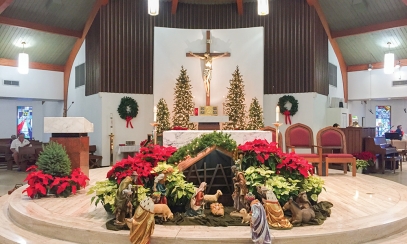
What Does the Church Teach About AI, and What Should Catholics Do About It?
We are introducing a new audio option for listening to certain articles. This service is powered by AI.
We are introducing a new audio option for listening to certain articles. This service is powered by AI.
Question: Artificial intelligence is becoming so widespread; I am worried about how life is changing and that we will rely more on computers and robots to speak and think for us. What does the Church teach about AI, and what should Catholics do about it?
Answer: Your question is timely. Pope Francis has addressed the ramifications of AI from a gospel perspective. For Pope Francis, while this fast-advancing technology presents new opportunities, it also poses serious challenges to human fraternity and the development of a Christian culture. AI challenges public policymakers who enact laws, who must guarantee AI serves human solidarity and peace. The Pope calls upon world leaders to make certain AI does not worsen inequality and injustice in our global community.
Pope Francis calls for discernment and vigilance to guide the growth of AI so that it promotes freedom and fulfillment for people of every race, language, and nation. The Pope worries that if we are inattentive to the evolution of AI, the human person will become “fodder for algorithms.” The Holy Father warns world leaders to look beyond regulation so that AI does not create a false separation between information and living personal relationships because humankind’s progress depends on hearts striving for communion.
I have only dabbled in AI apps but, I am aware that AI already engulfs my life, with automated phone systems, algorithm-driven online activity, and apps devoid of interpersonal contact.
The rapid spread of virtual and digital communication creates a culture increasingly devoid of person-to-person encounters.
During the Pandemic, we discovered that connecting only by virtual means strains relationships, makes staying connected to loved ones and colleagues difficult, and leave us hungry for the company of people and in person contact.
Technology is not harmful in and of itself. At the same time, intentionally choosing to do business and socialize with actual people is important to maintaining our Christian worldview. One must discern if the technology intended to make our lives easier and provide more family time and leisure has made us more, anxious, unhappy, and isolated. Catholics must ask if text messages and emails allow us to understand each other better. Are the hours spent on social media leading to more harmonious conversations, particularly between people with different points of view? While I have access to vast amounts of information from every source, am I wiser because of it? Has the digital world given me deeper insight into my lived experience? These are not yes or no questions; they are the beginning of serious and ongoing dialogue.
It is perplexing why we call this new technology “artificial intelligence.” AI is a tool created by human creativity and beneficial only to minds who use it to foster humanity’s freedom, equality, and fulfillment.
It becomes “artificial” only if we forget AI’s human origin and its true purpose, to give expression to the human spirit. The test for AI must be how it serves justice, and peace, which is the context for the advancement of all the world’s people and a more harmonious society. AI cannot substitute for the human heart’s ability to integrate the totality of human experience.
Catholics must be committed to the discernment and vigilance called for by Pope Francis. It is up to Catholics to point to Christ as the model for human fulfillment and work to ensure AI does not diminish human dignity and freedom.



